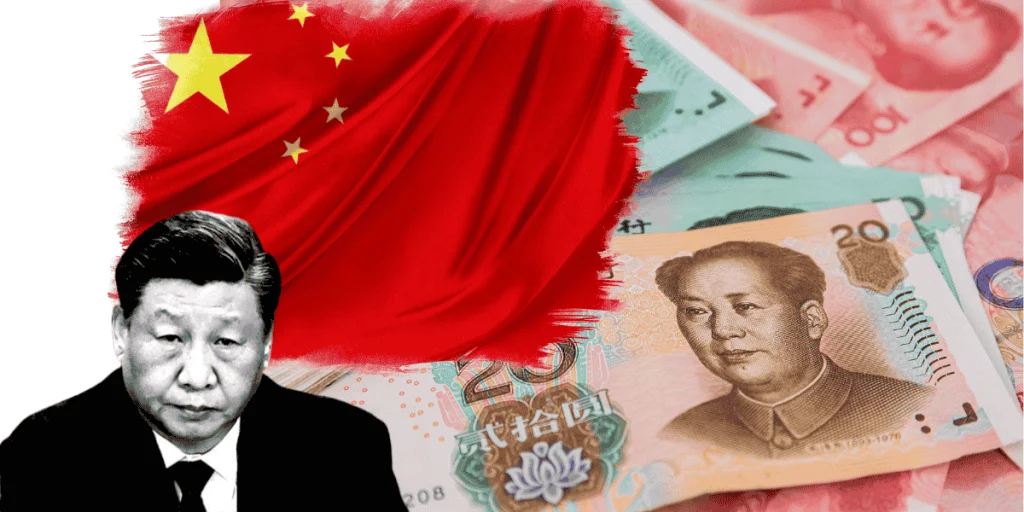
A recent report highlights that China’s extensive anti-corruption campaign within the People’s Liberation Army (PLA) has resulted in the dismissal of two consecutive defence ministers and numerous senior military officials. This crackdown on graft could potentially jeopardize the nation’s military build-up objectives.
A December 18 report titled “Military and Security Developments Involving the People’s Republic of China” details rising corruption within the PLA and China’s efforts to curb it. A senior defence official noted that corruption probes and senior leader dismissals may impede the PLA’s progress toward its 2027 goals.
The official noted that corruption investigations and dismissals are already impacting military capabilities and construction projects. These issues are expected to resurface. The CCP announced the 2027 military modernization goal in 2020, aiming to complete national defence and military modernization by 2035 and achieve a world-class military by mid-century.
The report outlines China’s goals for 2027, which involve accelerating the modernization of military theories, personnel, weapons, and equipment. Additionally, it aims to enhance the integration of intelligence, automation, and other technologies. Furthermore, the report cautions that China may be preparing to invade Taiwan by 2027.
The recent report assessment comes amid allegations that Chinese Defence Minister Dong Jun is under investigation for corruption. The Chinese Foreign Ministry dismissed these claims as “just shadow-chasing.” However, fears have arisen that Dong may be the third consecutive defence minister dismissed by Xi Jinping, following the expulsions of Wei Fenghe and Li Shangfu for accepting bribes.
The report, published in a foreign journal, highlights that in 2023, the PLA faced a fresh wave of corruption investigations and the removal of senior leaders, potentially hindering its progress toward the 2027 modernization goals. Between July and December 2023, at least 15 high-ranking military officers and defence industry executives were dismissed. Many of those investigated or removed were responsible for equipment development projects aimed at modernizing China’s ground-based nuclear and conventional missiles.
In late October, Beijing formally dismissed Li Shangfu, the then-PRC Minister of National Defence. From 2017 to 2022, Li headed the Central Military Commission’s Equipment Development Department (EDD), overseeing all of the PLA’s munitions purchases. His removal followed the dismissal of several PLA Rocket Force (PLARF) leaders in July of the previous year, including PLARF Political Commissar Xu Zhongbo, then-PLARF Commander Li Yuchao, and other deputy commanders.
The report suggests that the widespread dismissal of senior PLARF leaders is likely linked to fraud involving the construction of underground missile silos during a rapid expansion period for the PLARF and China’s missile industry. This large-scale corruption has likely reduced PRC leaders’ confidence in the PLA, especially given the PLARF’s critical nuclear mission. It further emphasizes that Beijing’s trust in senior PLA officials is likely eroded by the extensive corruption affecting all PLA services.
PRC leaders likely see the CCP’s decade-long campaign as essential for building a professional fighting force aligned with the PLA’s 2027 modernization goals. In March 2024, CMC Vice Chairman He Weidong addressed a PLA delegation at the PRC’s annual legislative gathering, stating that the CMC would target “fake combat capabilities” within the military, likely referring to corruption in weapons procurement.
Michael Chase, Deputy Assistant Secretary of Defence for China, Taiwan, and Mongolia, remarked at a briefing that the ongoing anti-corruption campaign might uniquely impact the PLA’s ability to achieve the milestones set by Xi Jinping. He noted that this situation likely undermines the leadership’s confidence in the PLA’s political reliability and overall capability to fulfil their assigned tasks. Since taking office in 2012, President Xi Jinping has been determined to eradicate corruption within the PLA, aligning with his broader goal of transforming the PLA into a loyal and elite military force.
At a Central Military Commission Political Work Conference, he emphasized the “deep-seated problems” within the PLA, calling for “earnest rectifications” and “soul-searching reflections.” He stated, “There must be no place for corrupt elements to hide in the military, and the gun barrels should always be in the hands of those who are loyal and reliable to the party.”
Experts and US officials have recently noted that Xi Jinping’s ambition to transform the PLA into a “world-class” military by 2050 is increasingly unattainable due to widespread corruption within China’s Defence Ministry and Industrial Base. This corruption affects critical military infrastructure and overall combat readiness.
In another section, the report suggests that China is almost certainly learning from Russia’s war in Ukraine to shape its strategy toward Taiwan. A top defence official mentioned that China aims to advance its objectives in the information domain and views the sanctions on Russia as a signal to become more self-reliant to withstand potential sanctions.
Additionally, the report indicates that China now has approximately 600 nuclear warheads in operation, a rise of about 100 since last year’s assessment. Although this aligns with previous projections, the senior defence official expects China to continue expanding and modernizing its arsenal beyond 2030, possibly exceeding 1,000 operational nuclear warheads by then. Predictably, the Chinese Foreign Ministry condemned the report as “irresponsible.” Ministry spokesman Lin Jian claimed it ignored facts and was biased. He added that, like previous reports, it focuses little on truth and aims to amplify the “China threat” narrative. Lin reiterated China’s commitment to peace, stability, and progress, while also emphasizing their determination to defend their sovereignty, security, and territorial integrity.
